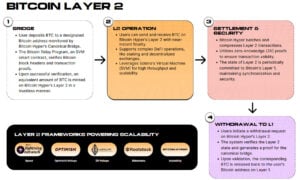Music is not just entertainment; it is a tool to address global problems. This is how.
The Bidi Bidi refugee camp in Northern Uganda is now the country’s second-largest city, with a population of over 270,000. The camp-turned-city, which was first established in 2016, faces all the challenges of urban life, but these are exacerbated by a lack of infrastructure and the precarious livelihoods of its residents. Yet, it has local government, education, and health infrastructure, a thriving nighttime economy, and the politics and interpersonal challenges that come with living side by side in increasing density. However, one thing that was missing until 2023 was a place to congregate that was free from religious, social, or political bias. This is where the Bidi Bidi Arts and Music Center, which opened its doors that year, came in. The world-class facility offers a space for creation, practice, and performance, led by the Playing for Change Foundation. But it serves a bigger purpose. The building collects rainwater and has a community garden. It is used for maternity care, sexual health seminars, and vaccination drives. Its programming has trained 500 refugees as farmers, who have since provided food for 10,000 people, all despite cuts from the World Food Program. And it is open to everyone, regardless of where they came from, in a place where everyone is adjusting to new personal and structural realities.
This is more than an arts centre. It is a replicable model for exploring how to protect, preserve and grow the global music ecosystem at the same time.
https://playingforchange.org/support-our-agro-farm-project-in-northern-uganda/
Playing for Change Foundation
The traditional music industry is facing headwinds. Technology that has been promoted to serve artists and creatives continues to foster a reality where it is the artists who are serving the technology. The supply of music continues to vastly exceed demand. Three-quarters of the music uploaded online is, at present, never listened to. Touring, once a robust revenue source for many, faces financial challenges due to increased costs, higher insurance premiums, and the loss of markets resulting from conflicts or climate change. Yet, at the same time, the industry continues to grow, buoyed by double-digit growth in emerging music markets and an increase in local language music dominating local charts.
When examining Bidi Bidi alongside the challenges facing the global music ecosystem, solutions being trialed in Northern Uganda offer unique insights. Bidi Bidi is, like any other arts centre, a talent incubator. There is a recording studio on site where the next global superstar could emerge. Music lessons teach future practitioners. Performances build talent and develop audiences. But that’s not the sole purpose here. Instead, a different approach is taken that utilizes music for social benefits alongside the writing, recording, and performing. Here, music is intentionally used as a tool to foster community cohesion, address mental health and post-traumatic stress, and create a space for entrepreneurs and independent thinkers. It is an intentional and strategic tool for collective benefit, to solve collective problems.
Still, the Bidi Bidi Music and Arts Center is seen as a nice thing to have; a response to a crisis, a singular example for a singular purpose. It is not, on the surface, connected to global music industry activity. This is incorrect. By doubling down on music’s social benefits, it becomes easier to argue and expand its economic benefits. For example, as the centre has developed, the Ugandan industry has seen improvements in government positions towards copyright and music investment. It may be a start, but it is encouraging.
The trick is to see Bidi Bidi, or any similar centre, like a train line. Without the tracks, no trains can run. Regardless of the trains being brand new, if there are tracks, it is not going anywhere. Music requires tracks as well, but its tracks are investment, infrastructure, copyright and a recognition of music’s impact. Yes, music can move around the world seamlessly, but the economic and social benefits of it, in places where it can deliver the most impact, cannot. Instead, a recording becomes more like a train car without a track.
The Arts Centre is part of the track. And a connected network also means that stations must be built and concessions created, all of which create jobs and skills. With music, the structure is the same. While there is a considerable amount of analysis that goes into the economics of building train tracks, with music, that foresight and analysis—both on social and economic issues—are often absent.
Bidi Bidi is providing a living, breathing example to change this. We can both find the next superstar and train farmers, chefs, and hospitality workers of the future. We can increase access to recording, while also tackling sexual health. And we can do it better, leading with music, because of its impact on everyone, everywhere, and music – and those who make it – will be one of the main beneficiaries of this We just need more Bidi Bidi’s.
Source: https://www.forbes.com/sites/shainshapiro/2025/09/23/can-an-arts-centre-in-uganda-help-create-a-better-music-industry/


